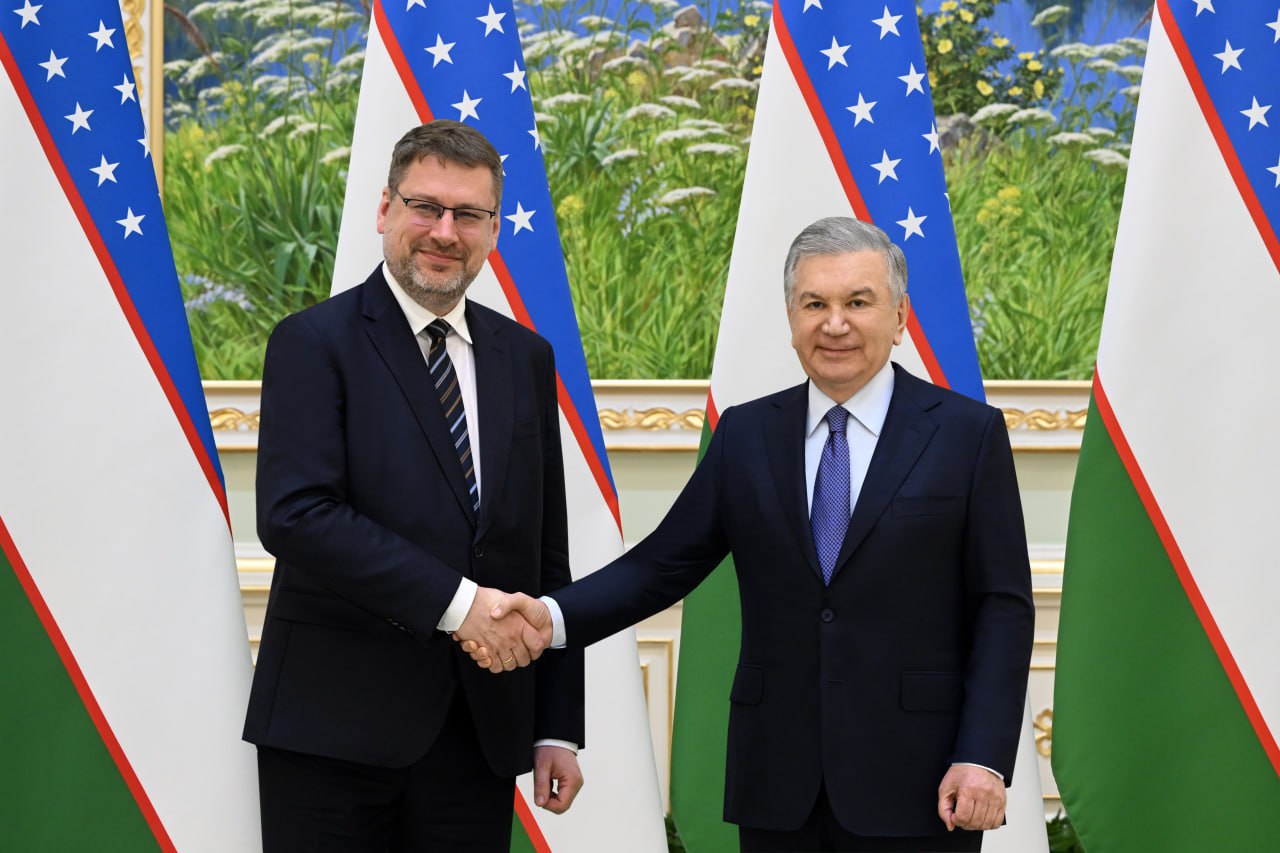BAKU, Azerbaijan, October 24. In recent years,
the role of Central Asia in world politics has been noticeably
changing. The region, which until recently remained on the
periphery, is turning into a center of interest for leading powers.
Against this backdrop, Europe is seeking to strengthen its
influence and build new formats of cooperation with the countries
of the region. A special place in this process belongs to
Uzbekistan – a country carrying out large-scale reforms and
focusing on political openness and economic modernization.
President Mirziyoyev’s visit to Brussels at the invitation of
European Council President António Costa and European Commission
President Ursula von der Leyen became an important step in this
direction. This is not just another diplomatic trip, but a
transition to a new format of relations between Uzbekistan and the
European Union. The main outcome of the visit will be the signing
of the Enhanced Partnership and Cooperation Agreement – a document
that will replace the previous 1996 treaty and define the strategy
of bilateral relations for decades ahead.
For both sides, this step carries great significance. For the
European Union, it is a way to strengthen its position in Central
Asia, where the influence of China, Russia, and Türkiye continues
to grow. Brussels aims to act not through political pressure, but
through the economy, technology, and “soft power.” For Uzbekistan,
this is a path toward deeper integration into the global economy,
greater investment attractiveness, and a higher status as an
independent and reliable partner.
Economic ties are already developing rapidly. Trade turnover
between Uzbekistan and EU countries has exceeded $6 billion, while
the total portfolio of investment projects is estimated at 30
billion euros. The European Bank for Reconstruction and Development
remains one of the country’s key partners, financing projects in
green energy, transport, and the private sector. The European
Investment Bank is preparing to open its regional office in
Tashkent – a move that demonstrates Brussels’ long-term
commitment.
The new agreement will bring even more economic opportunities.
The liberalization of trade and economic relations, simplification
of procedures, reduction of technical barriers, and expansion of
the services market will open new export directions and enhance the
competitiveness of Uzbek products on the EU market.
Energy occupies a special place in this dialogue. Brussels views
Central Asia as part of the new architecture of energy security.
Uzbekistan, with its vast solar and wind power potential, is
becoming a reliable partner in implementing “green” projects.
“Uzbekistan fully supports international projects for the supply
of electricity from the region to Europe,” said Shavkat Mirziyoyev
during the first “Central Asia – European Union” summit held in
Samarkand.
By 2030, the country plans to increase the share of renewable
energy to 54 percent and introduce 24 GW of green capacity.
European companies are already involved in building solar and wind
power plants as well as hydrogen production projects. This
cooperation benefits both sides: the EU gains alternative energy
sources and reduces dependence on fossil fuels, while Uzbekistan
gains access to advanced technologies, investments, and new
markets.
Another factor strengthening these ties is Uzbekistan’s growing
participation in international trade mechanisms. The expansion of
the GSP+ scheme and progress toward joining the World Trade
Organization (WTO) reinforce the country’s position in the global
market. The structure of exports is already changing: the share of
raw cotton is decreasing, while finished textiles and industrial
goods are increasing. In 2024, exports from the light industry
exceeded $3 billion, and supplies to the EU grew by 1.5 times. This
clearly demonstrates how political agreements translate into
tangible economic results.
Active diplomacy accompanies these economic achievements. Ahead
of the visit, Foreign Minister Bakhtiyor Saidov held a series of
meetings in Italy, France, Luxembourg, Belgium, and Switzerland.
The discussions focused on industrial cooperation, innovation,
education, and green energy. In Luxembourg, the 18th meeting of the
Uzbekistan–EU Cooperation Council took place, where both sides
reaffirmed their shared commitment to deepening the
partnership.
“We are confident that the results of this session will give new
momentum to our cooperation and help build a stronger partnership,”
said Foreign Minister Bakhtiyor Saidov.
At the same time, Saida Mirziyoyeva is strengthening the
humanitarian dimension of diplomacy. In Brussels and London, she
held meetings dedicated to education, youth initiatives, and
women’s entrepreneurship. A symbolic decision was the inclusion of
Uzbek and Old Uzbek languages in the curriculum of Oxford
University, a step that expands Uzbekistan’s cultural presence in
Europe.
Cooperation with the EU is becoming increasingly practical. In
Belgium, joint agricultural projects are being discussed within the
framework of European initiatives – including the introduction of
solar-powered drip irrigation systems, sustainable seeds, and new
technologies in agriculture. Such programs reduce water and energy
consumption by more than 50 percent and increase yields. This shows
that the partnership goes beyond politics and becomes a tool for
real transformation.
Uzbekistan’s active engagement with the European Union reflects
its strategic course toward strengthening economic sovereignty and
diversifying external relations. In this context, the signing of
the new agreement is not just a symbolic step but confirmation of
Uzbekistan’s new role in the region. The country is no longer an
object of foreign policy but an independent participant in global
processes, capable of shaping its own agenda. Europe is seeking
reliable partners in Central Asia – and Tashkent demonstrates that
it is ready to be one of them: open, pragmatic, and strategically
self-reliant.
